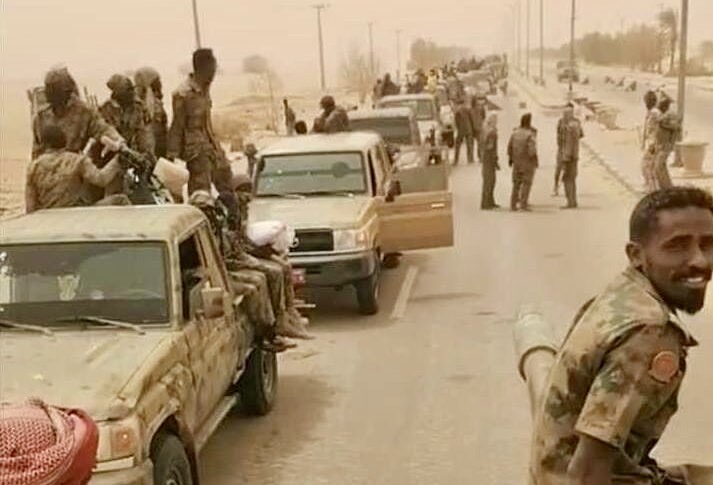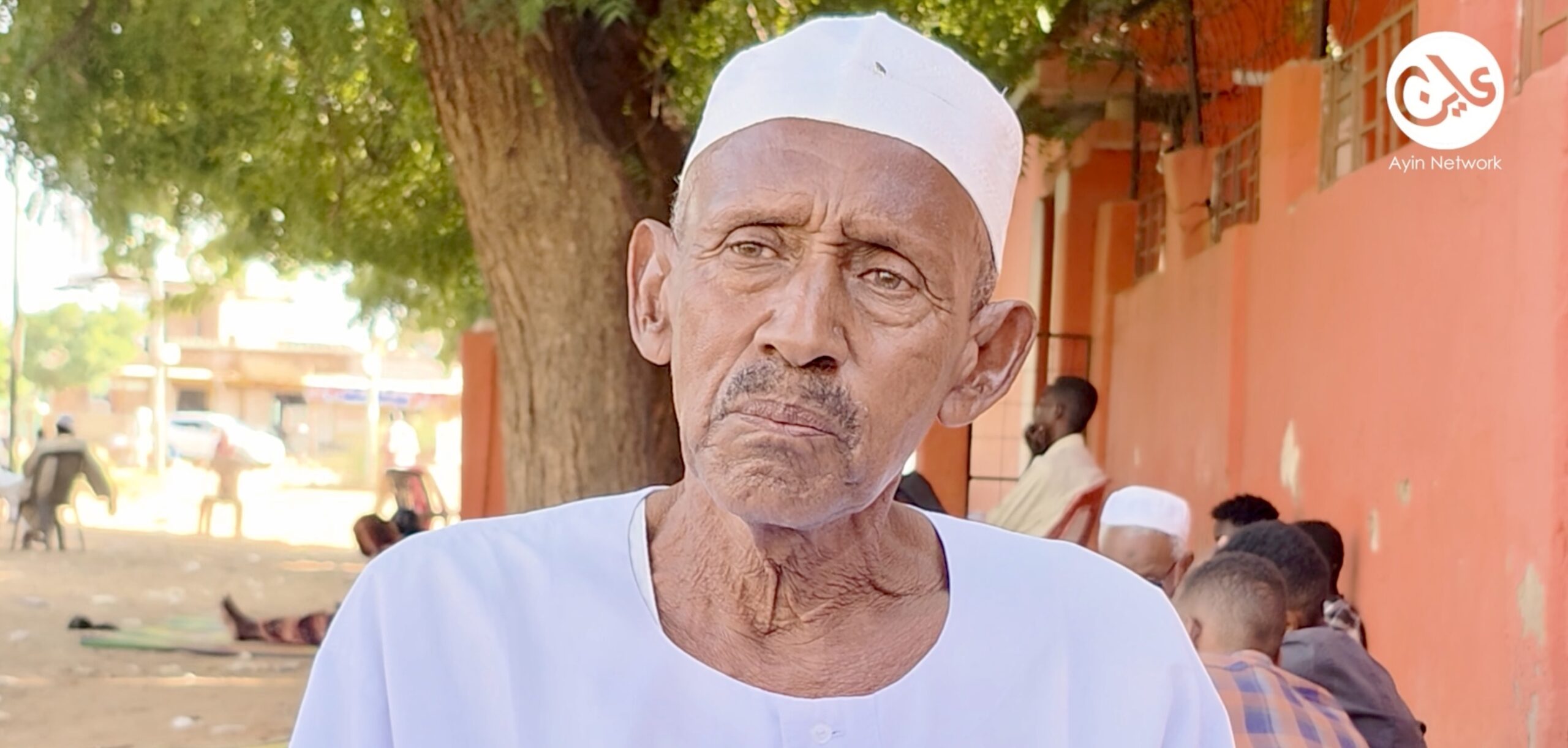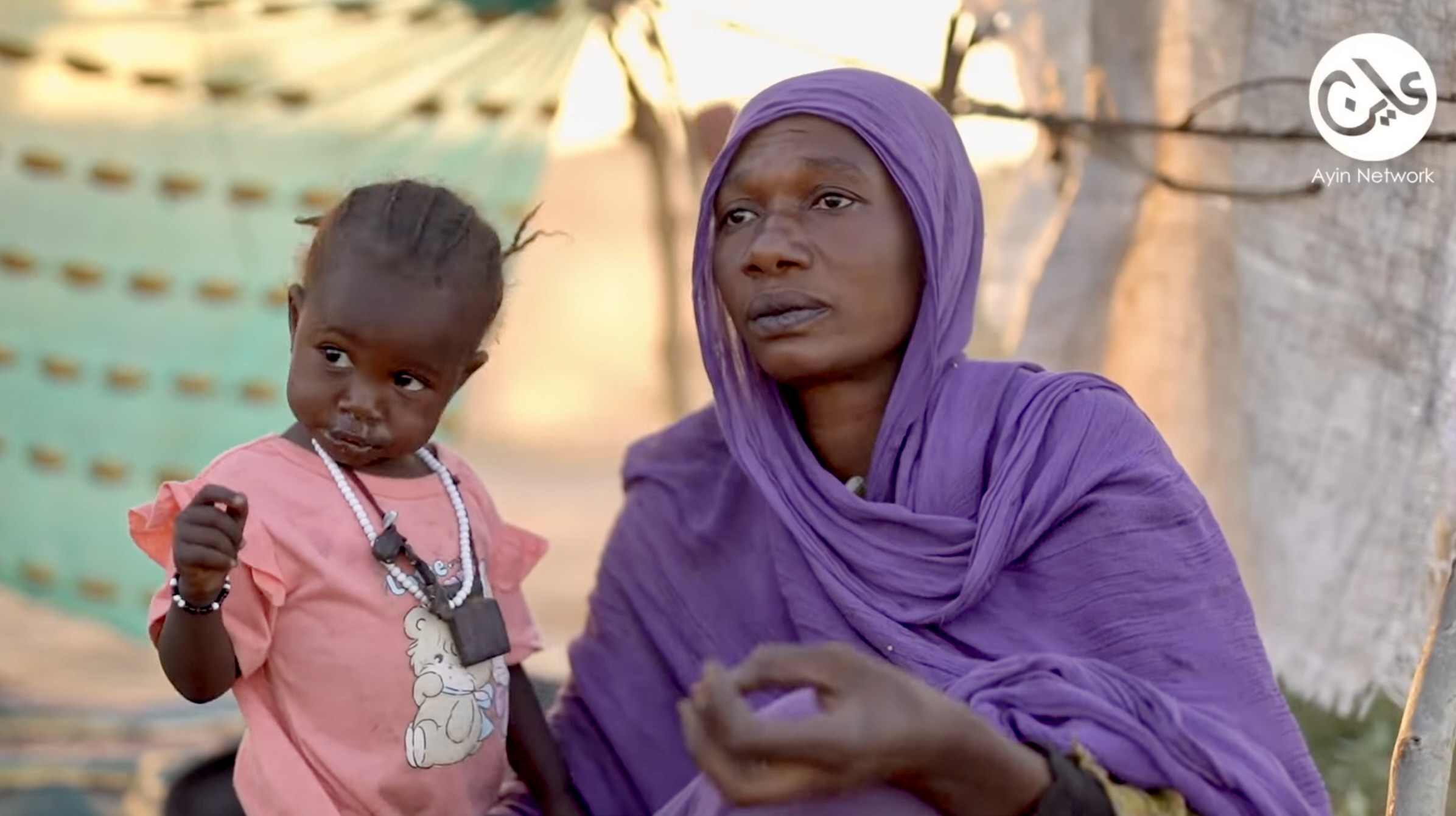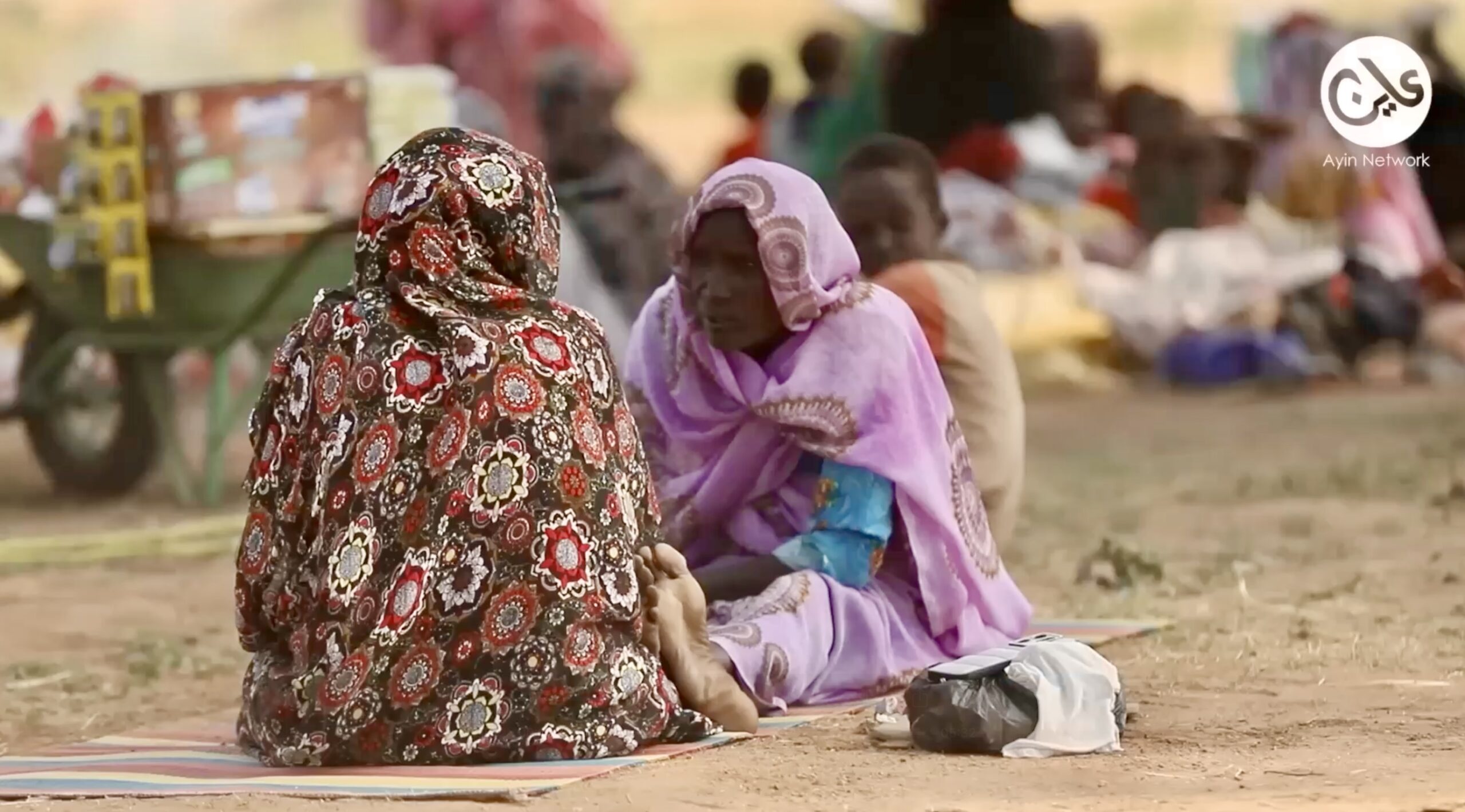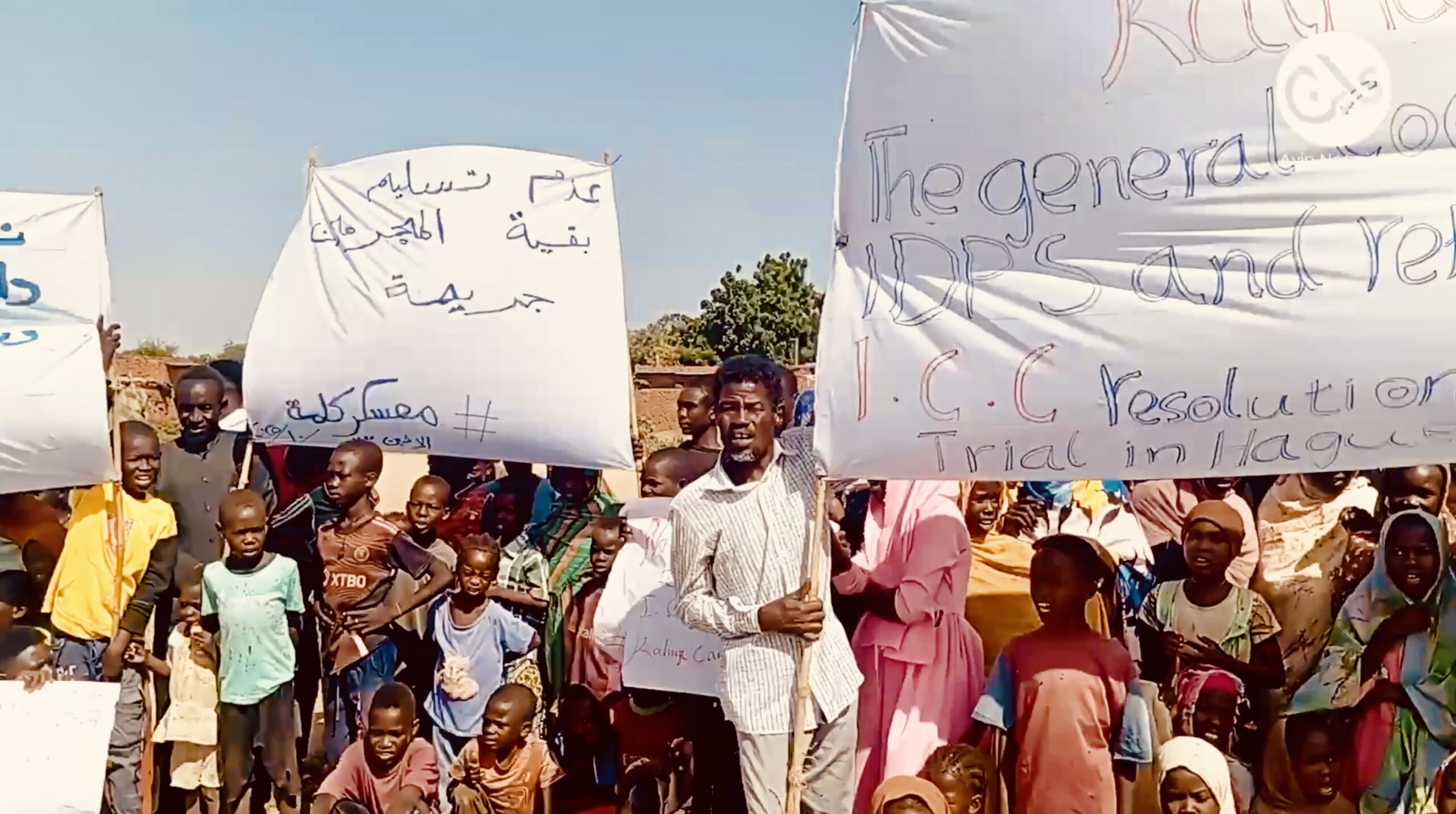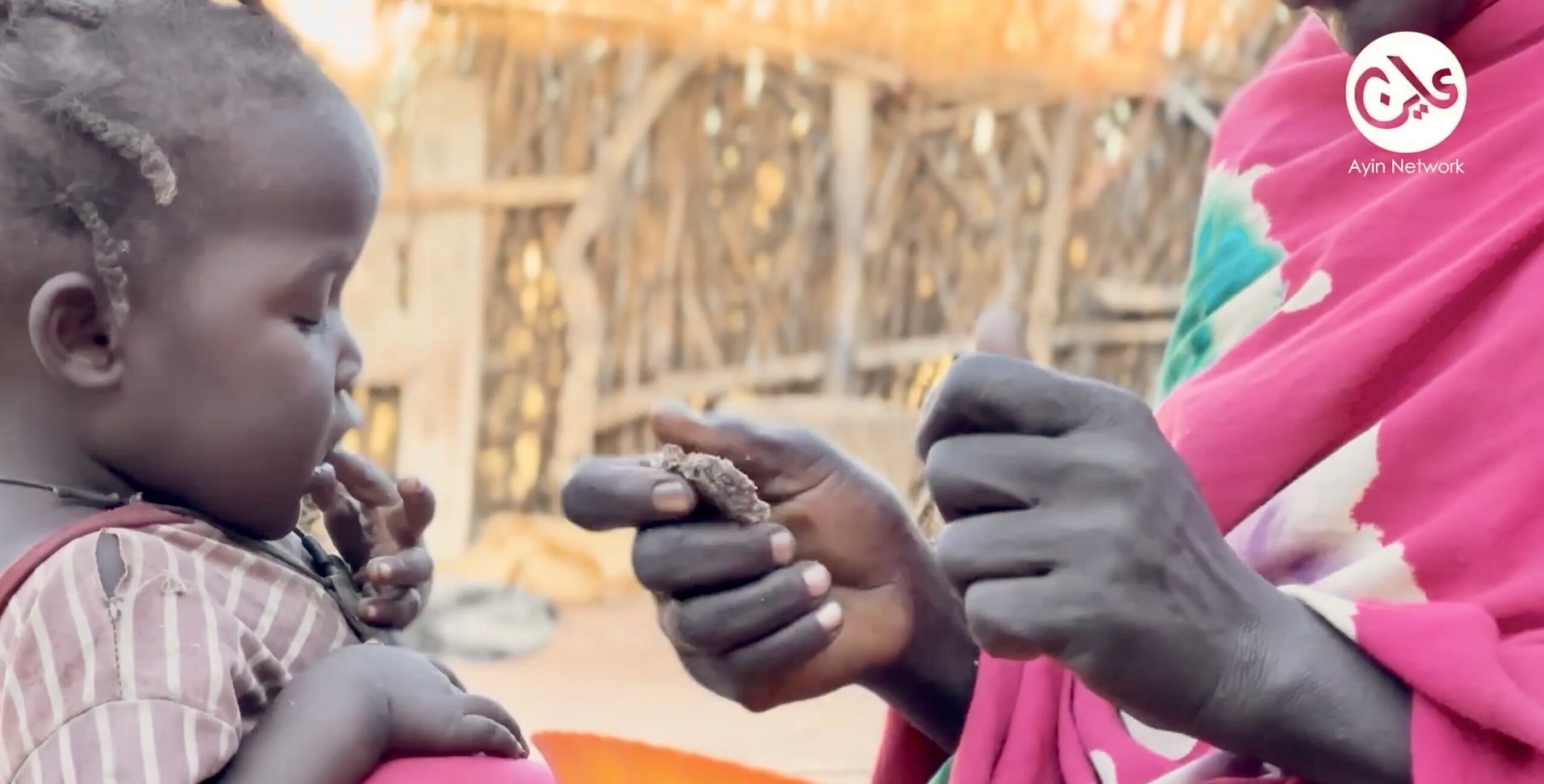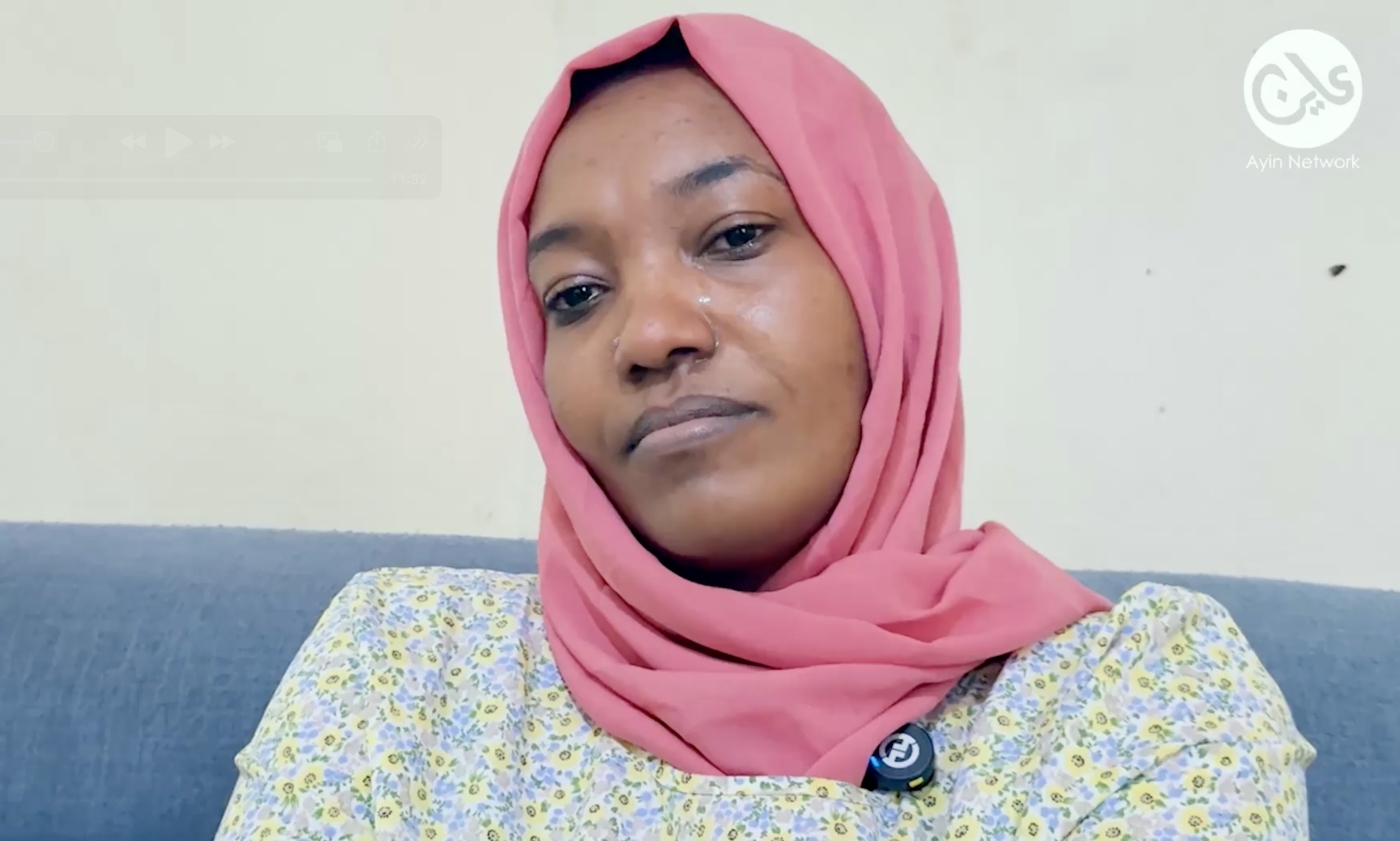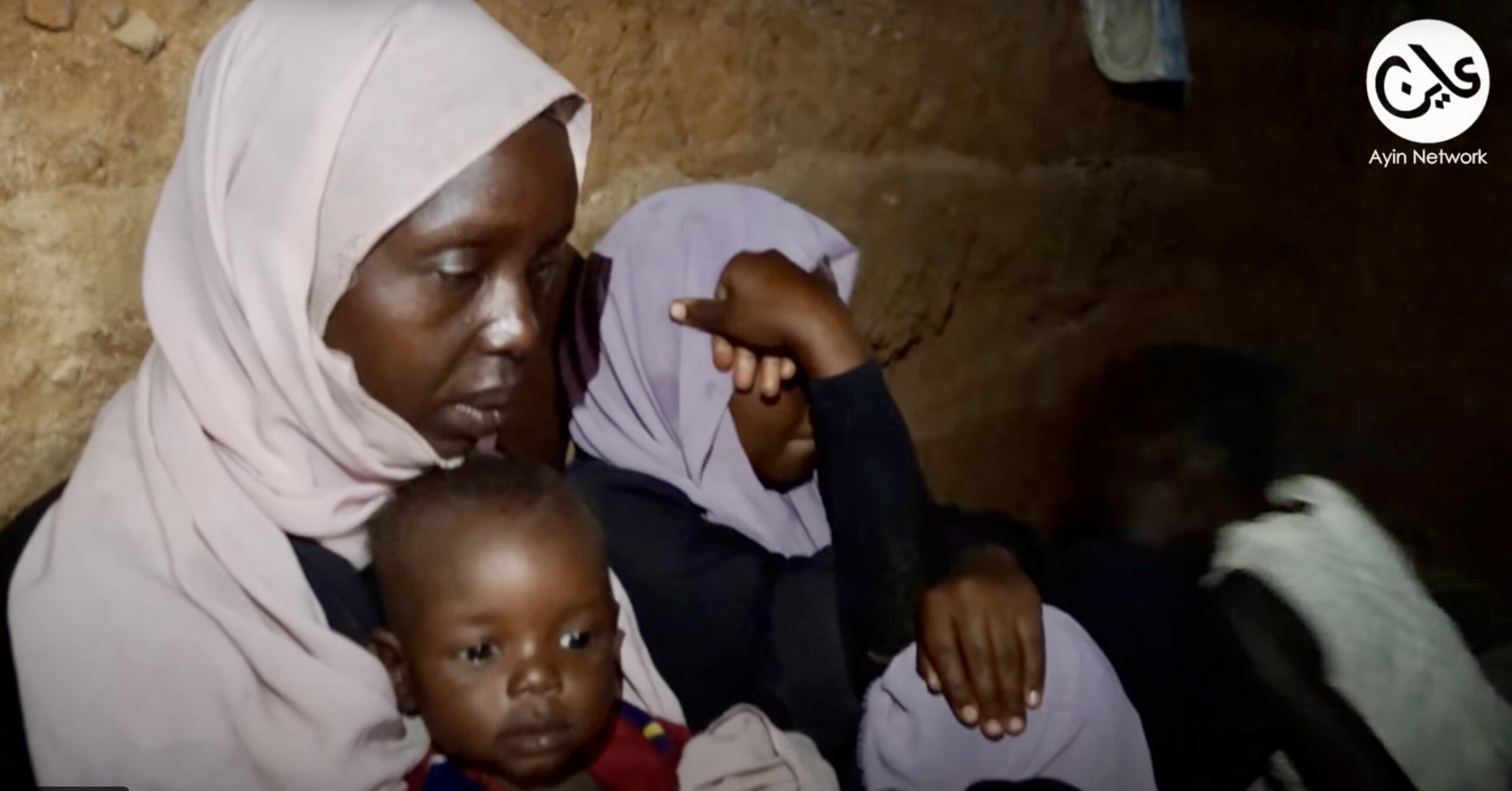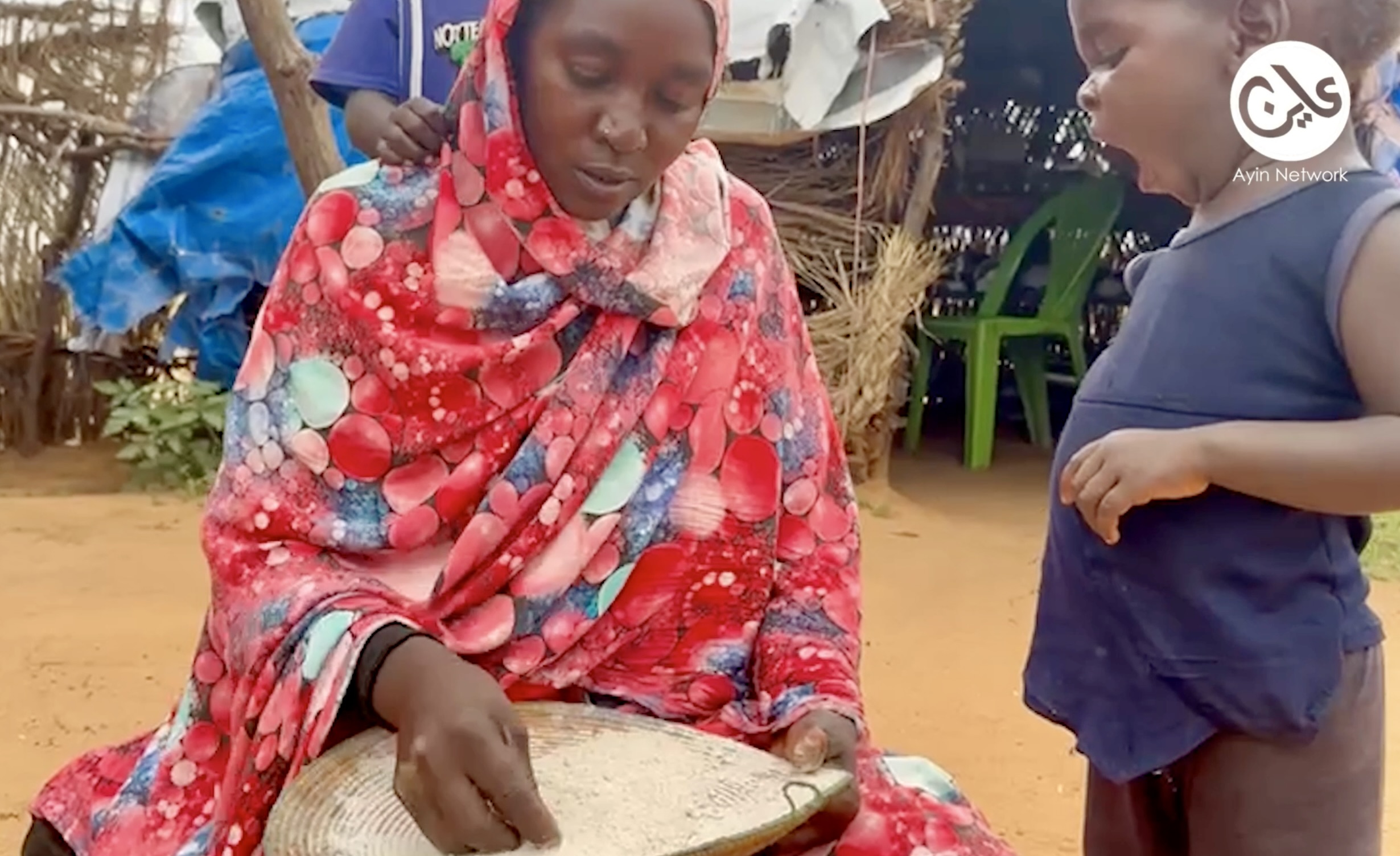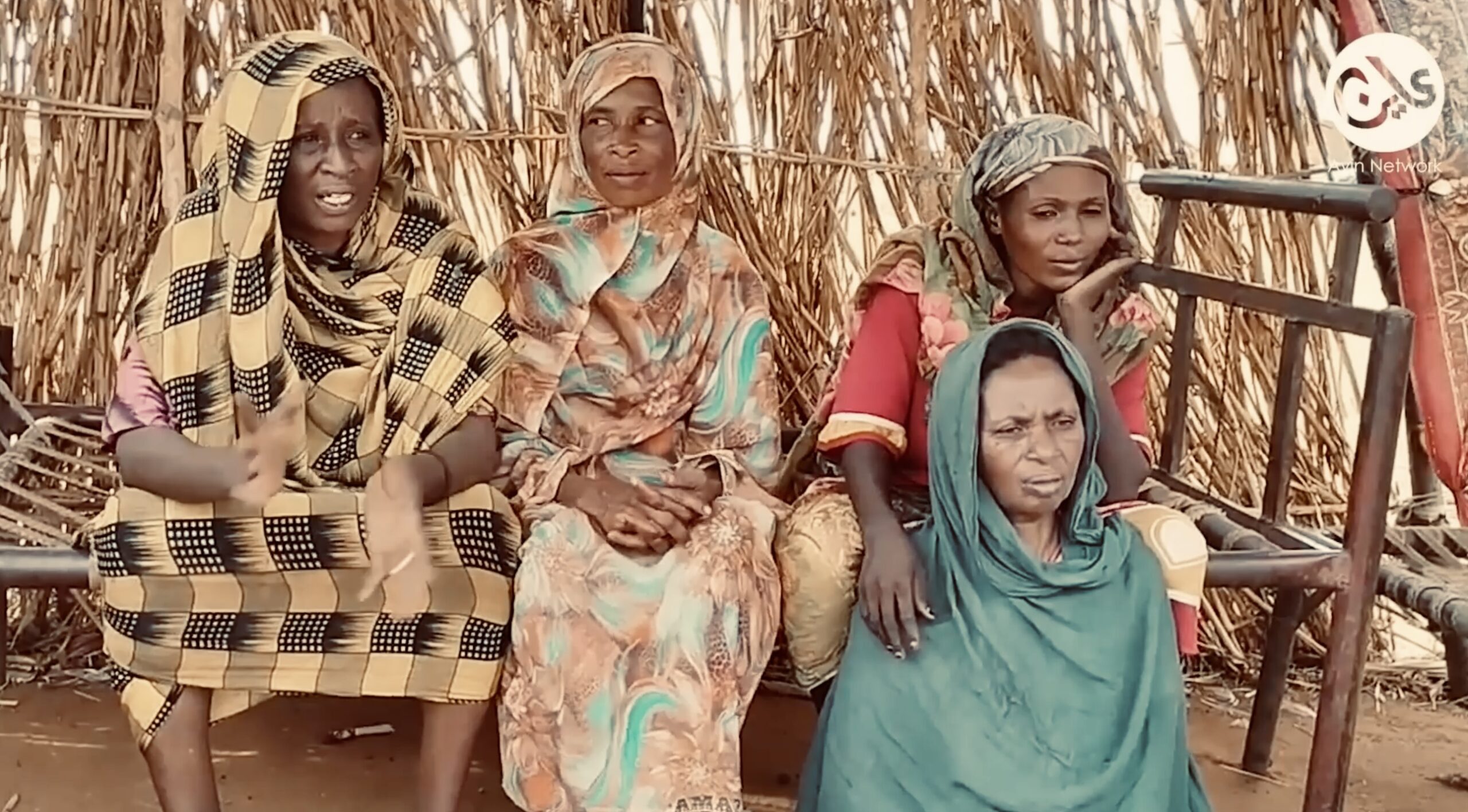The impact of RSF’s capture of Wad Medani
23 December 2023
Over a quarter million civilians have fled Sudan’s Al-Jazeera State, the UN reports, after four days of fighting between the army and the paramilitary Rapid Support Forces last weekend.
“First, I was displaced from Khartoum, now I am forced to move again,” says Siddiq Ahmed*, a former resident of Khartoum who relocated in May to Wad Medani, the capital of Al-Jazeera State. Ahmed fled Wad Medani last weekend on foot due to a lack of finances for public transport. While walking to the southern border of the city, Ahmed said he saw Rapid Support Forces [RSF] looting shops and homes in the city. “My home [in Khartoum] is gone, now here is also gone –I have no words left,” he told Ayin.
Clashes in Wad Medani have led to mass displacement out of the state, once considered a haven for the war-displaced and a breadbasket for the entire country. Aid agencies fear even greater humanitarian challenges in the days ahead.
“A place of refuge has now become a battleground in a war that has already taken a horrific toll on civilians. This has forced WFP to put on hold food deliveries in some locations in Jazeera State at a time when people need our help the most,” said Eddie Rowe, WFP Representative and Country Director in Sudan.
Infants and staff from an orphanage in Wad Medani were trapped amidst the violence. The 202 orphans, mostly under the age of three, were previously relocated from the conflict in the capital, Khartoum. Orphanage supervisor Radwan Abdel-Jabbar told Ayin he made repeated calls to aid agencies to help them escape the conflict, but the violence prevented humanitarian organisations from accessing them.
“We are stuck. We cannot even approach the main gate, and if we run out of food and milk, we do not know how to provide it –this is a real disaster,” Abdel-Jabbar told Ayin. On Wednesday evening, the RSF published a video on social media claiming they had responded to the appeals of the orphanage and had provided aid.
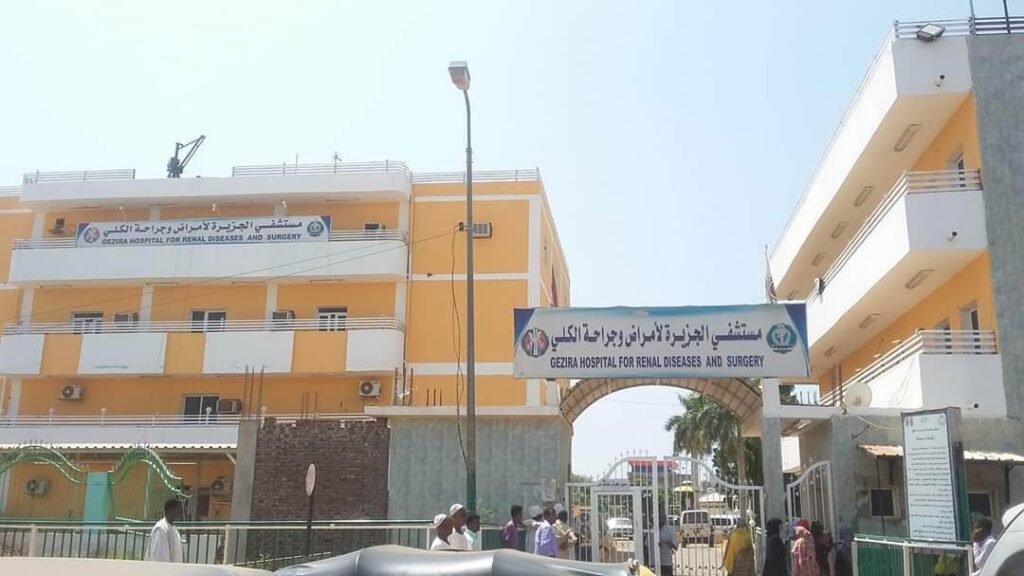
Closed critical medical facilities
The fighting in Wad Medani has severely curtailed health services within the state and for patients across the country, according to medical personnel within the city. After the collapse of the health sector in Khartoum, the city of Wad Medani became the only destination for patients throughout Sudan for specialised treatment such as cancerous tumors, heart and neurosurgery, and treatment for infectious diseases such as immunodeficiency and tuberculosis, medical sources told Ayin.
“No other Sudanese state was able to absorb the shock to the health system as Wad Medani did after the destruction of Khartoum because it was well-equipped and had most of the facilities,” said Hossam Al-Amin, a physician at the Digestive System and Endoscopy Center, Wad Medani. “It became a destination for patients from all of Sudan, including Darfur and Kordofan.” With many medical personnel from Wad Medani now displaced, he added, “the situation is heading towards a comprehensive health catastrophe.”
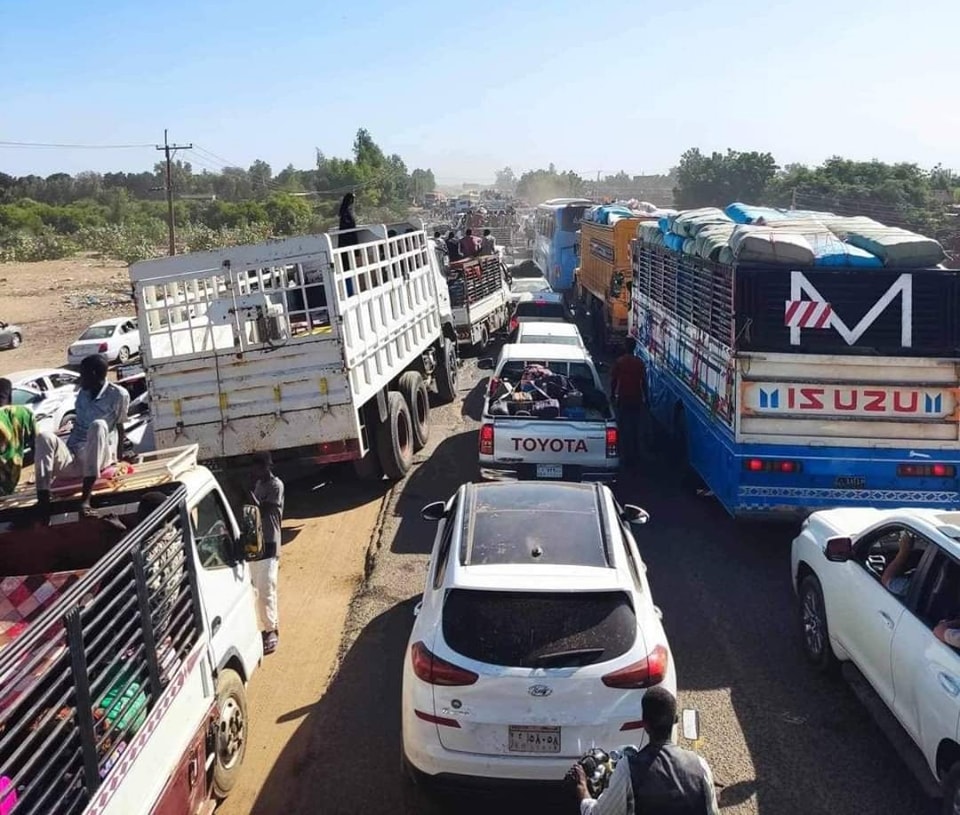
Rapid Support Forces’ rapid capture
Once considered a stronghold position for the army, few residents could believe the relatively quick RSF victory. “The RSF attacked the city on several fronts on Friday,” Ahmed said. “By Monday, they were taking selfies within Medani’s main roads.” Even the army leadership appears bewildered by their poor defense of the strategic area. According to a statement by the army spokesman Brigadier General Nabil Abdullah, an investigation is underway to understand “the reasons and circumstances behind the withdrawal.” One military official who spoke to Ayin on the condition of anonymity says the army unit deployed in Wad Medani was weak since some of their forces were relocated to fight in Sudan’s capital, Khartoum.
In turn, the RSF released a statement upon seizing Wad Medani, calling on the displaced citizens to return to their homes. “We will work to protect them in a way that guarantees their security and safety, obtains all necessary basic services, and secures the access of humanitarian aid by facilitating the entry of organisations working in the humanitarian field,” the statement said.

But very few Wad Medani civilians heeded this statement – partly since several residents claim to have seen the RSF openly looting the city. According to members of the youth-driven resistance committee in Wad Medani and the neighbouring town, Hassa-Hissa, the RSF have actively looted civilians and their properties since taking control of the area. RSF spokesman Lt. Col. Al-Fatih Qurashi has denied these claims, saying the RSF are deployed in the area to “safeguard civilians” – defying social media posts that appear to document RSF members stealing vast sums of money within the city.
After capturing the state capital on 18 – 19 December, the RSF have since taken control of nearly all towns within the state. On 20 December, RSF seized Hassa-Hissa –the next day they took Hajj Abdallah and Wad al-Haddad. The RSF also captured Rifa’a, a town in the northeastern part of the state, and stormed the city’s hospital, local medical staff told Ayin. Hospital staff said a nurse, Nader al-Haj Zarrouk, was killed during the attack while two doctors and another nurse are still missing.
According to the Sudan War Monitor, the RSF entered al-Qutaynah, the northernmost army-controlled town in White Nile State, where they filmed themselves at a captured army outpost. All towns and cities along the Blue Nile are now under RSF control, the Monitor reported.
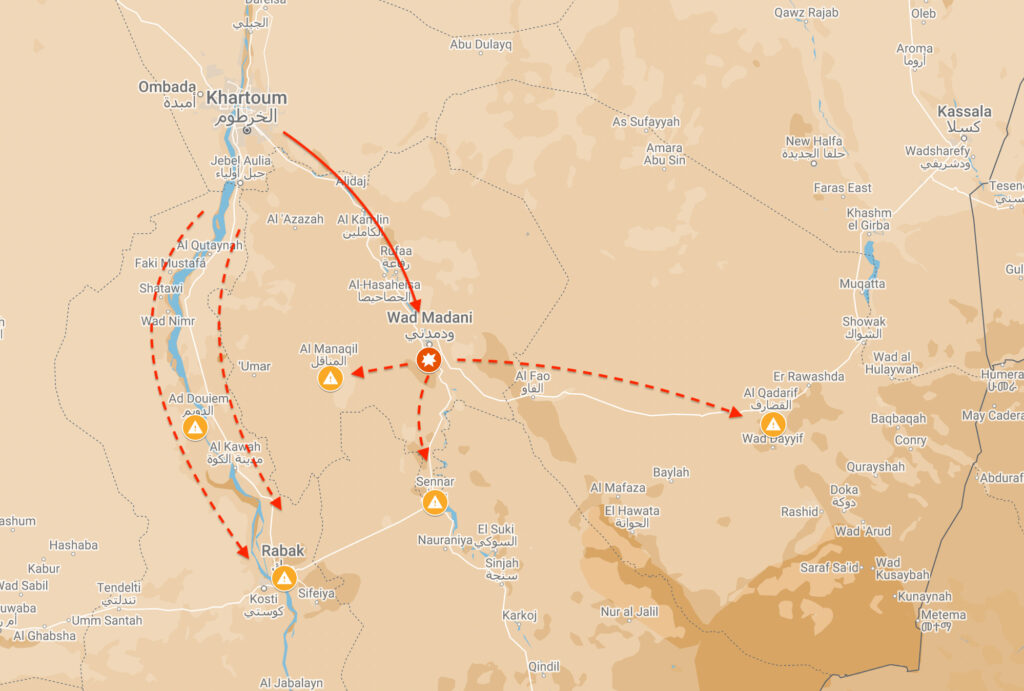
Sennar
One of the main destinations for the conflict displaced from Al-Jazeera State is Sennar, another once peaceful, agricultural area south of Wad Medani. Hundreds of cars coming from Wad Medani were stranded in Sennar due to fuel shortages.
One of these cars belongs to Walid Hussein and his family, who left everything behind in Wad Medani and now find themselves stranded in a new city. Like many civilians from Wad Medani –unaccustomed to conflict– this is the first time he and his family have been displaced by war. “I do not know how to find housing for my family,” Hussein told Ayin while stranded by the roadside without petrol. “My children are young, and I am also with my parents, who are elderly. The weather is cold at night, and we are not able to obtain food and milk for the children.”
With the closure of petrol stations in Sennar, cars are piled up from the northern entrance to the city, all the way to the city’s bridge –clogging access to the city market and peripheral neighbourhoods, eyewitnesses said. Last Tuesday morning, the price of one gallon of petrol reached 75,000 Sudanese Pounds (roughly $125) on the black market in Sennar. By the end of the day, the price had ratcheted up to 100,000 Sudanese Pounds per gallon (roughly $166). Despite the fuel shortages, vehicles may be compelled to relocate soon, residents told Ayin. Residents fear the RSF could easily target Sennar given the city’s relative proximity to Al-Jazeera State and limited army defenses.
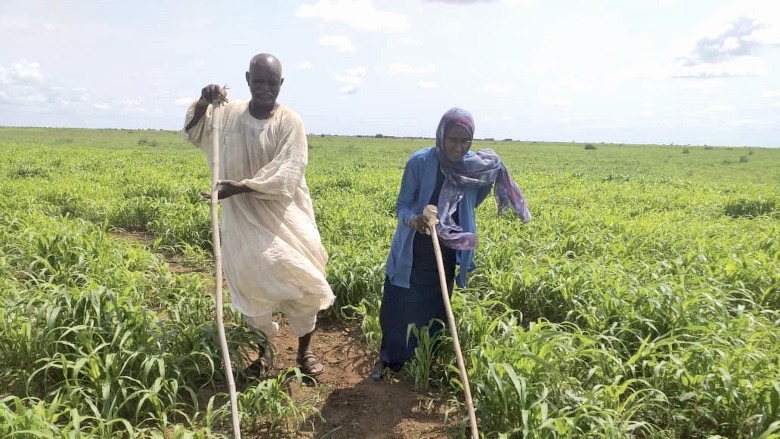
A broken breadbasket
The RSF’s capture of most areas of Al-Jazeera state has triggered more than displacement; UN agencies fear this latest violence may also lead to serious food shortages. Nearly 18 million people in Sudan are acutely food insecure during this ongoing harvest season, the World Food Program (WFP) says, at a time when food is generally more available. Half of all wheat produced in Sudan comes from Al-Jazeera State, WFP said, where an average of 350,000 metric tons of wheat is harvested annually enough to feed around six million people. The state’s high agricultural capacity and key location along critical supply routes, the WFP said in a press release, make it vital to Sudan’s food system.
Since last Sunday, the movement of commercial trucks and travel between the city of Al-Manaqil, an important commercial and industrial center in Al-Jazeera State, and western Sudan has stopped. Abdel-Rahman Hamdallah is a member of the mostly youth-driven, voluntary emergency response rooms in al-Nuhud, West Kordofan State, and says his town has been affected by the lack of commercial activity. “Large areas in Kordofan, East, and North Darfur depend on food supplies coming from the city of Al-Manaqil,” Hamdallah said. “The merchants stopped their trucks due to the outbreak of fighting in any area, fearing their trucks and goods would be vulnerable to looting.”
In the same context, the markets of East Darfur State witnessed an increase in the prices of basic commodities, especially sugar, flour, onions, lentils, and rice, by 40% after the clashes in Al-Jazeera State, according to the Chamber of Commerce in Al-Daein, the capital of East Darfur State.
The RSF military victory in Al-Jazeera has placed the newly displaced from Wad Medani and other areas in a perpetual state of confusion. For people like Siddiq Ahmed who fled on foot, he simply does not know where to go. The RSF capture of this vital agricultural hub allows them to target multiple locations, including Sennar and Gedaref. “Right now I can only think about my immediate future,” Ahmed told Ayin, “you cannot plan anything when trapped in a war.”




